Phenomenal Farm Stay in Flockhill
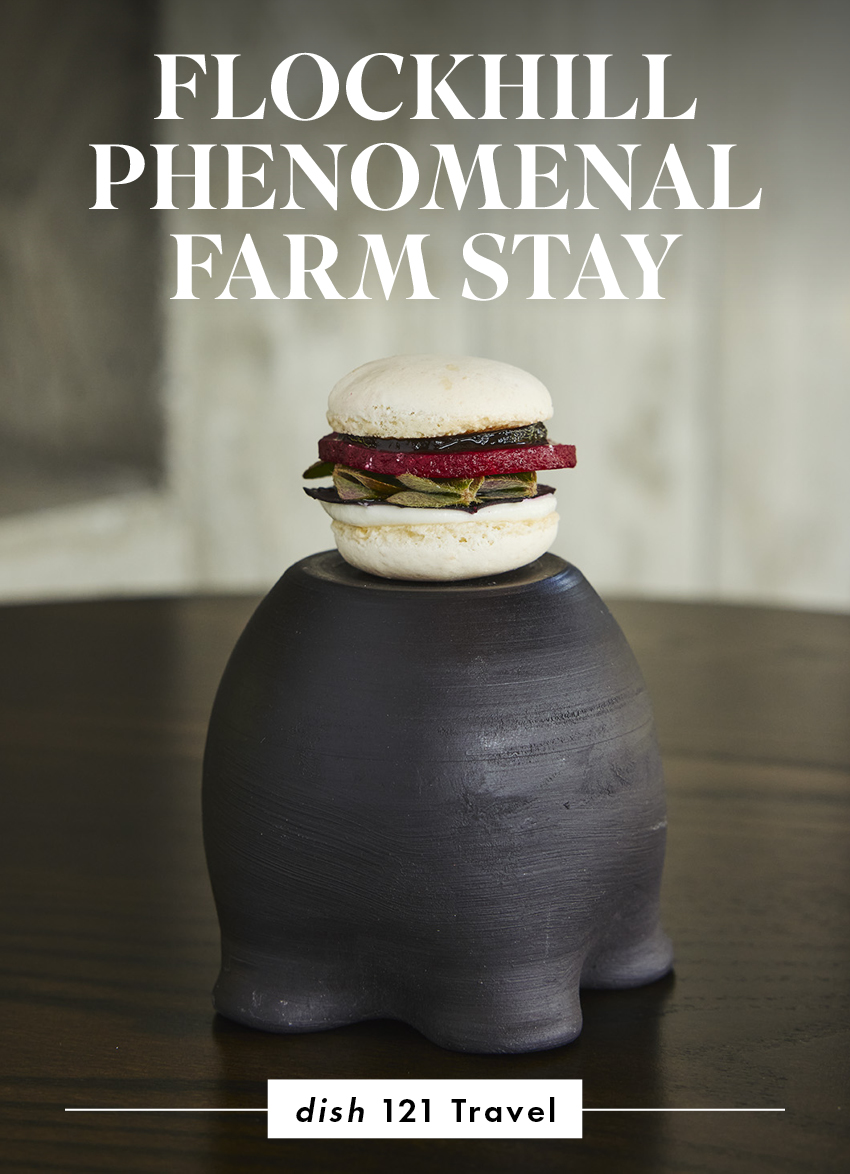
Breathtaking views, next level luxury and world-class food. This is a farm stay experience like no other.
What would you think if I suggested a farm stay in New Zealand’s South Island as an ideal location for the next season of The White Lotus? If only the Four Seasons Hotels & Resorts didn’t have the series locked down, I reckon Flockhill Station would be a front runner. With outrageously luxurious accommodation, impeccable service, world-class food and a range of bespoke activities on offer, guests are cocooned in sumptuous comfort, while surrounded by magnificent scenery.
Since 1857, Flock Hill Station has been a 36,000-acre working sheep station in the Craigieburn Valley. Today, the station is home to Flockhill Lodge, a stunning property that brings new meaning to the phrase ‘farm stay’.
Guests can stay in one of seven elegant two-room Villas or exclusively book out the entire four-bedroom private Homestead.
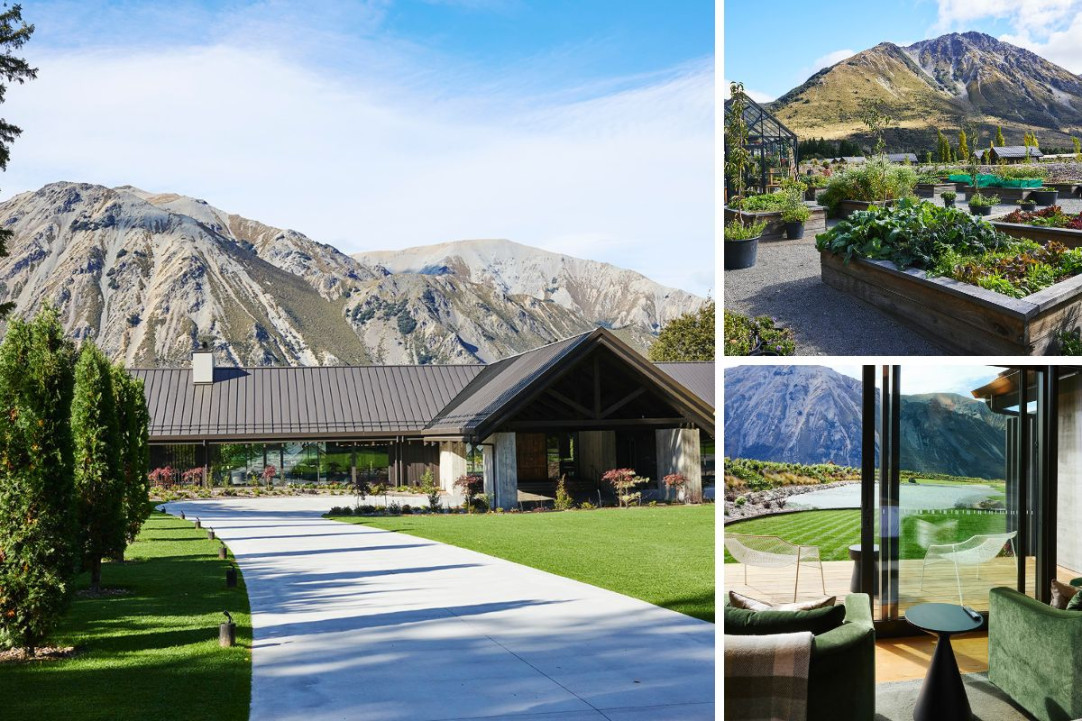
As you would expect with White Lotus-level luxury, The Homestead comes with a personal chef and attendant to cater to your every need. Each room has its own bath and during the stay guests are treated to a nightly four-course family-style or barbecue dinner, or anything they desire.
Meanwhile the Villas are no less glamorous, with baths for each room, three fires per villa, a central living area, private decks with outdoor seating and a further gas fireplace, and a fully stocked wine fridge.
The attention to detail and high-end fit-out that is on display in both the Villas and The Homestead is equally evident at the large, stately central Lodge. And, at its heart, the in-house restaurant Sugarloaf, overseen from conception by head chef Taylor Cullen. Not surprisingly, this is where I started, and finished, my stay. And as I chatted to Cullen, and tasted his incredible food, it was a joy to hear all about his processes, inspiration, superb kitchen garden, preparation and cooking techniques.
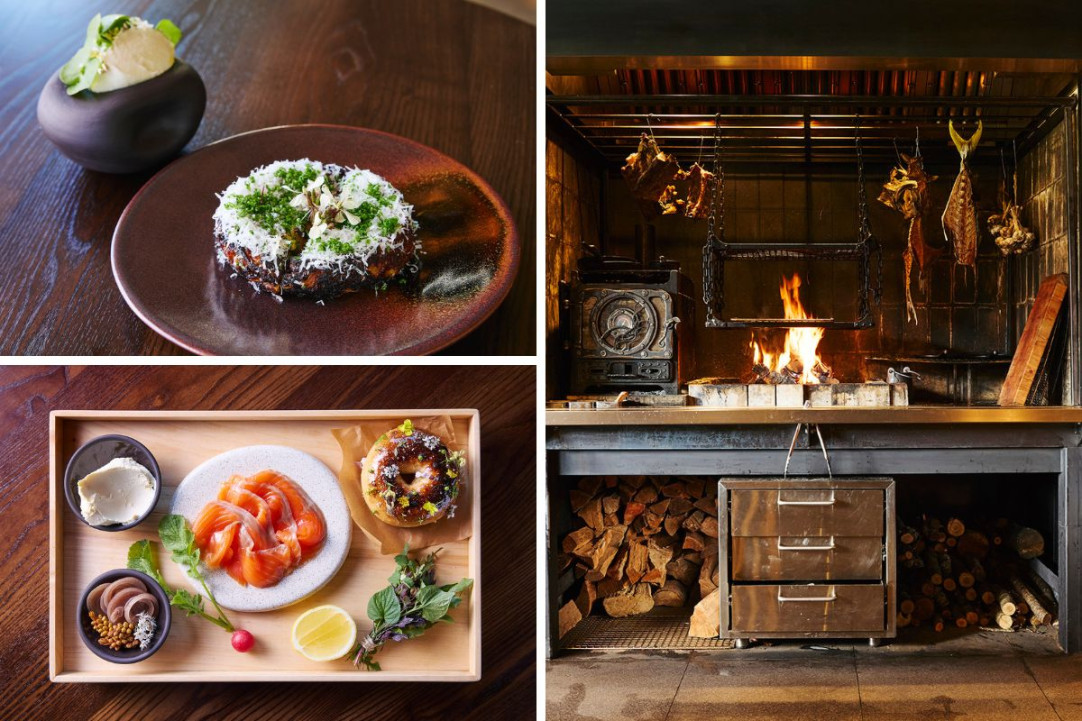
Our conversation began when I spotted a large jar of pickled ‘something’, which turned out to be Neptune’s necklace, a small, brown seaweed that resembles a beaded necklace. Its branches are made up of strings of hollow, water-filled, round or oval-shaped beads joined together by a short stalk. Cullen explains that every time he goes for a surf or gets a bit of time off to head to the beach, he has a good forage along the way, then pickles the little coastal herbs and seaweeds that he collects.
He also has access to the New Zealand native ice plant, grown from a cutting in sandy soil and nurtured in the green house. As he says, “It’s nice to bring the ocean to the mountains”. To pickle the Neptune’s necklace they first remove the beads, then fry them off quickly over hot coals, before pickling with honey and vinegar. “It’s kind of chewy...really robust, kind of like a light seaweed flavour that goes really well with fish dishes.”
Before I divert him to talking about the pickled lemon balm leaves, Cullen turns my attention to a massive jar of homemade fish sauce, “made from all of the guts, bones and everything from a big kingfish”. The ingredients are set at 60°C for a month, with ‘loads’ of Koji rice, salt and seasonings before it is ready to use. Cullen’s ethos for Sugarloaf is centred around only using things that are foraged or grown themselves, apart from seafood (given their distance from the ocean), which is sustainably caught and supplied by spearfishers Ocean Speared.
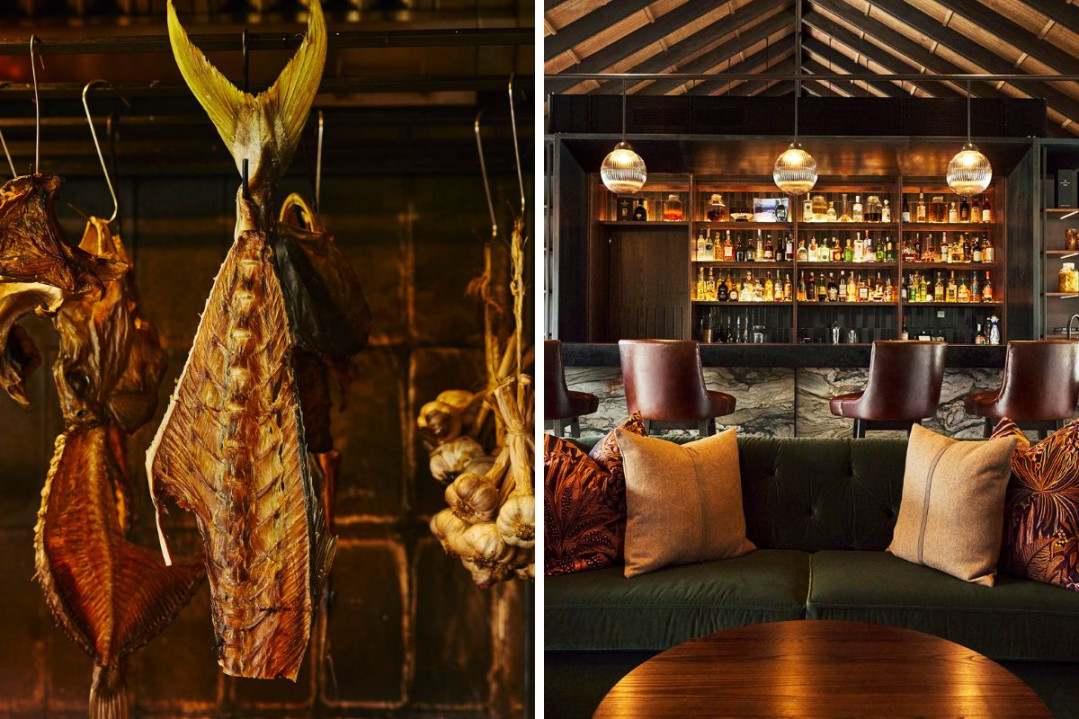
But there is so much more than pickling to admire on the kitchen side shelves. A large kingfish hangs inside a special humidity- and airflow-controlled fridge, aged for up to 21 days. Cullen explains this is only possible with exceptionally well cared for fish (this one was sustainably spear-caught) that is couriered immediately, then patted clean (never washed) on arrival, and prepared, before being stored. This way they have fish on the menu whether it is available fresh or not, and the flavour, he assured me (and as I can now attest), is concentrated but no more fishy. It also allows them to take portions off the bone as they need it, minimising waste.
As well as seafood, they have beautiful sheep and beef. He shows me a dry-aged cut. “We get whole animals so we can dry-age our own proteins. This is a rib eye, an Angus, it looks like Wagyu, a really beautiful cow... the flavour is magnificent...the whole process is so amazing, because you get a whole cow and there’s so much product that you would normally never get, like 80–100 kilos of fat, all of the bones, cuts like osso bucco, the liver, heart, tongue...everything!”
Pickling seaweed and dry-ageing are not your average techniques to be sure, but Cullen has been at home in the kitchen since childhood, in a restaurant with his (front-of-house) mum and (head chef ) dad.
Ready to start his own adventures as he grew up, Cullen headed to Australia where he worked at Longitude 131, the luxury lodge at Uluru, in 2011, then returned to Blanket Bay Lodge in Queenstown before a last stint travelling and cooking his way around Europe with his brother for a few years before exploring more in the US and Asia, and back to Australia.
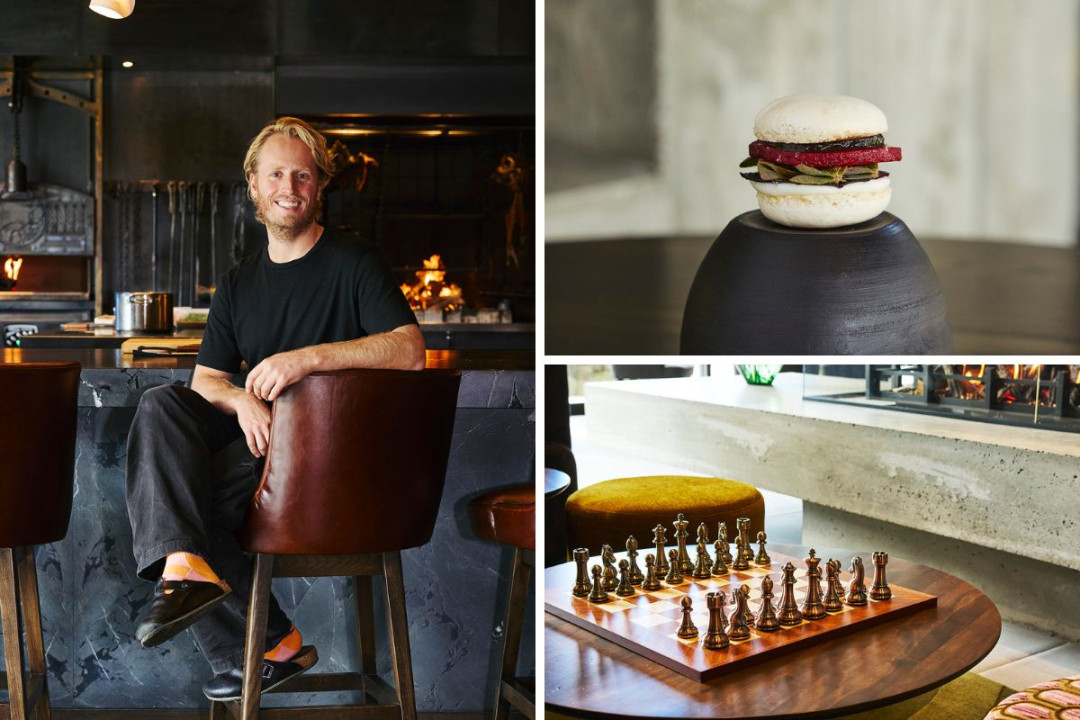
His involvement here at Flockhill began four years ago. He was integral from early on, helping architects Hierarchy Group design the Mediaeval-meets-modern kitchen featuring mataī wood and black steel, building it with his style of cooking — over woodfire — in mind.
He worked with Christchurch blacksmiths Flaxton Iron for the iron work to create the forged grill, and while the effort is a lot of work, he finds it immensely rewarding. These days there is something of a full- circle moment as his father is the general manager, and his mum does all of the reservations and keeps things looking beautiful. They introduced him to the concept of Sugarloaf at Flockhill and he was keen to get involved, with an eye and input on every detail.
Even the plates and dishes used at Sugarloaf are unique. Cullen works with a few ceramicists and tells me about a local supplier who lives ‘just down the road’ in Castle Hill. “She comes out and gets plants from the property and presses them into the plates, she got some clay and sediment from the lake and built it into a nice Japanese-style plate. She’s really amazing — she made these butter dishes the same colour as butter!”
“All of our wood is done by a local guy as well, he does anything from tea trays to all of the big picnic tables, the pergola in the garden, makes our chopping boards — it’s pretty special”, which is quite the understatement.
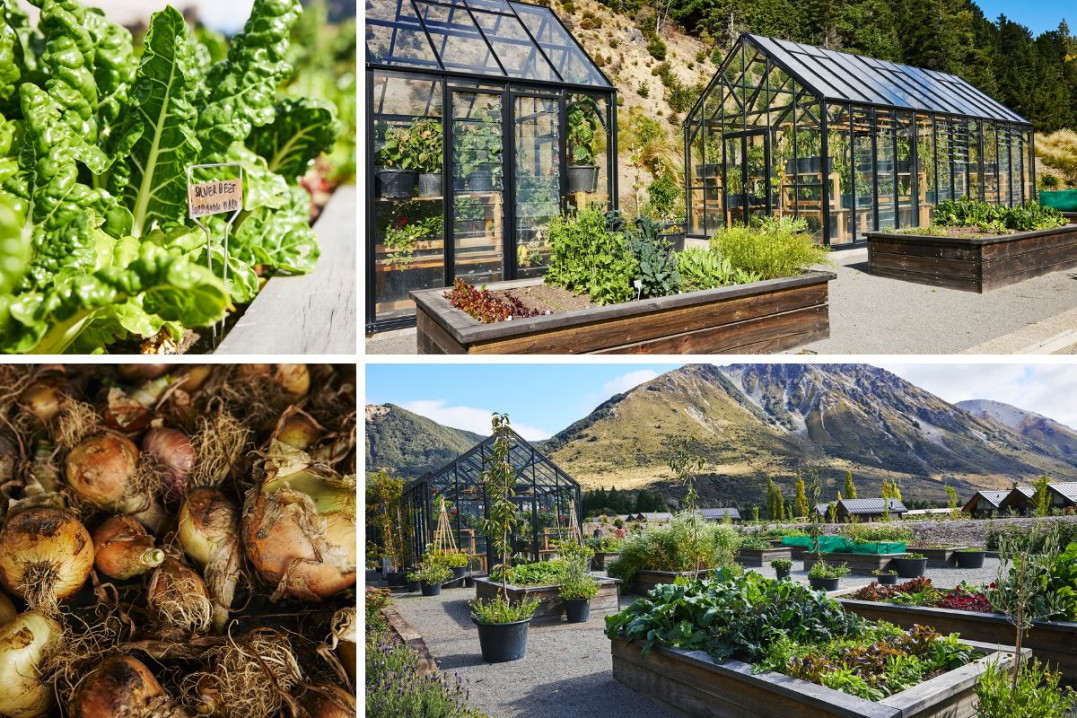
Having spent some time admiring the stunning kitchen, we then wandered down to the large kitchen garden, featuring two glasshouses, a multitude of planter boxes and the most picturesque mountain views. Completely organic, head gardener Sally (who, I’m told can grow anything), uses homemade mushroom fungicide and natural treatments for any pest or disease. The abundant produce is picked to order, again minimising waste, and ensuring the freshest and best produce makes it to the table.
For Cullen the vegetable component is equally as important as the protein. “Everyone’s been super stoked, people want to eat vegetables, and we have the capacity to make them taste really good because we grow them ourselves, and we treat them in a different way. Like our carrots we’ll cook down in carrot juice for hours over the grill. They kind of get a little smoky, and then we put them in the woodfire oven and we make them black on the outside — all of those sugars are caramelised, and then we toss them in fermented garlic honey and some vinaigrette... and it’s like this garlicky, roasty carrot, but then you eat the carrot and it’s the most intense carrot flavour that you ever had. They’re this deep orange. You need to treat vegetables as you would treat a slow-cooked piece of meat. You actually really have to work with it to get that flavour — we’re trying to showcase how good vegetables can taste.”
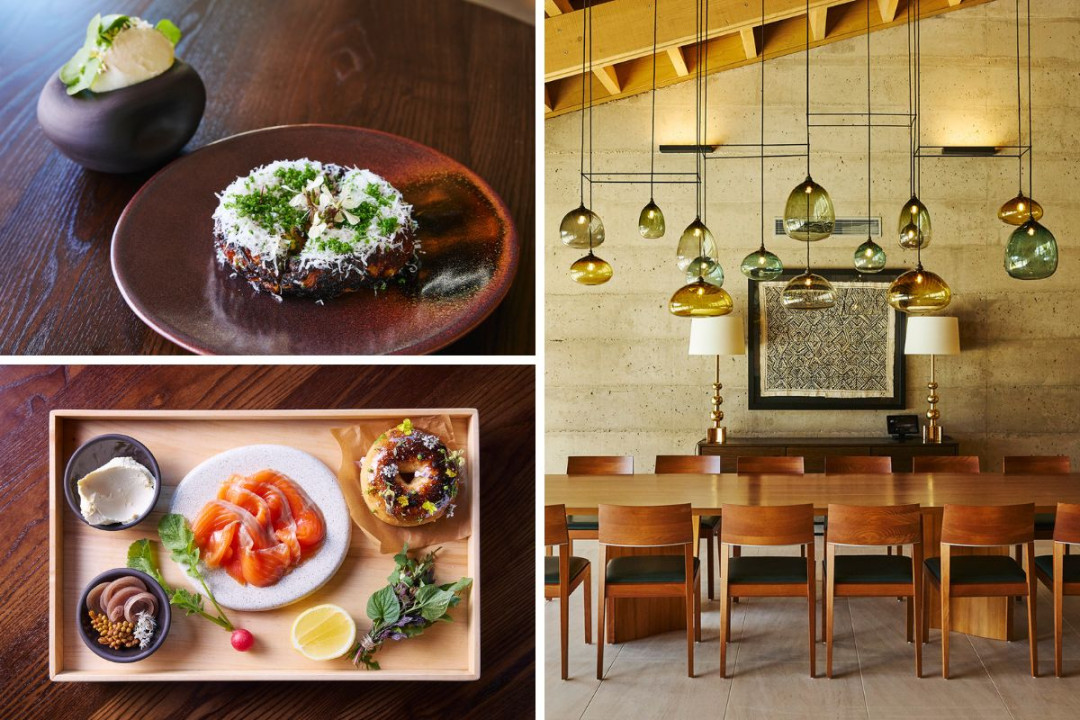
I asked what was in store on the menu for me and Cullen explained the style. The food and ingredients are similar to a Nordic style, given the similarities in climate and environment, married with New Zealand produce. The menu changes every day, with a full à la carte menu of four snacks, four entrées, a couple of mains, some sides and a couple of desserts.
The evening I stayed the weather was cold and crisp — the perfect climate to whet the appetite. And so I sat overlooking the imposing mountains and worked my way through a veritable feast — as beautiful to look at as it was to eat.
I began with an outrageous Potato Doughnut served with an indulgent aioli, and topped with strips of cured guanciale. On a lighter note, the Snapper with wasabi was elegant and fresh and followed by wickedly good Ciabatta with a sensational homemade cultured butter.
Next up perfectly cooked Venison with smoky sweet black garlic and aged Snapper with koji butter.
To finish, the clever Rocky Road, a twist on the childhood favourite, appropriately serve on a local rock!
And while I was ready for bed after a busy day, there were options to linger over a game of chess in a secluded nook or take a stool at the bar for a late-night cocktail or two.
Instead, I strolled back to my villa and poured a deep soothing bath before turning on my fire and, rather appropriately, watching the final episode of the latest season of The White Lotus.
Flockhill Station provides a truly unique experience, from the level of luxury in the accommodation, to the awe-inspiring scenery to the sophisticated yet accessible food. Perfect for a very special occasion — a once-in-a-lifetime holiday.
Sugarloaf is also open to the public for lunch and dinner reservation requests.
For more details and to see a sample menu, see flockhillnz.com/sugarloaf
latest issue:
Issue #123
Depending on where you live, spring can bring anything from warmer temperatures and rainy days, to hail, sleet and snow! Dish has you covered for all weather in our latest issue with everything from new season’s fresh asparagus to comforting fried chicken, three ways. With pizzas, dinners for two, recipes for entertaining, indulgent desserts, easy ‘make it tonight’ dishes, an extract from Olivia Galletly’s latest cookbook, fritters, and even a Mexican feast, this issue is jam-packed. With 100 recipes, this bumper issue is one not to be missed!

